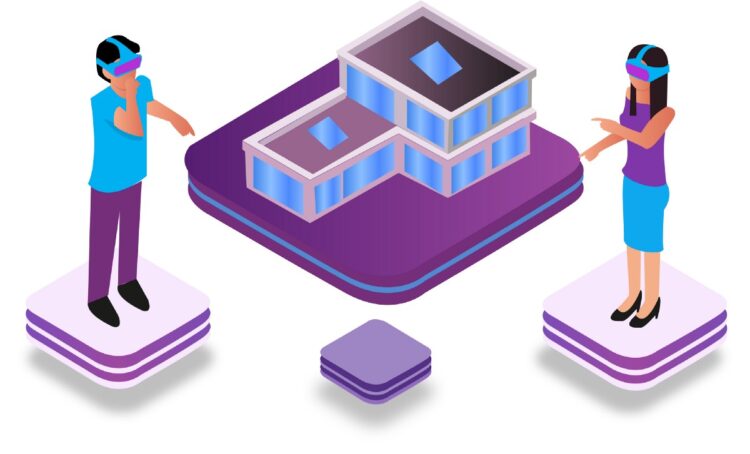It can be tough to stay motivated when you’re remote learning from home. But, with a good study routine, productive breaks and a little extra support, online learning can actually be really enjoyable.
These eight top tips will help your child make the most of online learning and reach their full potential.

1. Build a strong study plan
Online learning, like in-school learning, requires a certain amount of planning. Take time before you start to familiarize yourself with the contents of the course or subject, set goals and lay out a weekly and daily timetable to split subject topics into manageable chunks. Whilst organizing an online learning schedule can seem overwhelming there are lots of online resources that can help you plan your or your child’s day.
2. Enlist the help of a tutor
If you are struggling to monitor your child’s online learning or feel that your child needs the additional learning support of a dedicated tutor, why not explore online tuition as an option to not only boost your child’s grades but also their confidence.
Private tuition isn’t just reserved for higher-income families. With an online tutor, your child can receive access to personalized lessons, focused learning plans and the 1:1 attention of an experienced teacher. Sites like Tutor House specialize in connecting top-quality tutors with students of all levels and ages and offer flexible payment options catering to a range of budgets.

3. Educational games
Most children love to play video games in their free time. Online learning is the perfect opportunity to take advantage of this interest and introduce educational games to your child’s online learning regime.
There are hundreds of great online games to choose from ranging from subjects like Maths, foreign languages and Science to other activities like touch typing and general knowledge. Introduce these learning games to break up your child’s schedule and make these games something they look forward to.
4. E-learning resources
Motivation is a huge problem when it comes to online learning. Introducing interactive e-learning resources is a great way to boost morale and approach studying from a different angle. Mandala World Academy provides comprehensive online learning and uses advanced internet technologies. They use advanced and unique educational program with special teaching and learning methods developed by Dr. Mariale Hardiman as a comprehensive model for advanced education.
As online learning has increased in popularity and necessity, there has been a huge increase in the number of free e-learning resources available on the internet. Whether you choose to include educational YouTube videos in your child’s learning process or make use of interactive quizzes and challenges, e-learning resources are a great way to create variety in your child’s day.

5. Group learning
With the use of Zoom or GoogleMeet, why not encourage your child to create their own lesson plan and learn with their friends. This is a great way to switch up your child’s understanding of a subject by approaching it from a teachers perspective. Get your child to conduct their own research on their ‘lesson’ topic, create questions for their ‘students’ to answer and prepare answers for any common subject questions.
Working online with their friends also ensures that children are still able to socialise whilst learning from home. It’s really important for children to work with others, not just to ensure they have social interactions, but to work on their teamwork skills and bounce their ideas off each other. Discussing topics and teaching others what you have learnt is one of the best ways for children to retain new information.
6. Organised a ‘study space’
Whether your child is learning on a laptop, tablet or computer, make sure you provide them with a separate space to participate in online lessons and independent study. It’s no secret that the wrong learning environment can have detrimental effects on a child’s learning progress. You don’t have to give them a whole separate room for their learning, as long as they have a designated area for study this should help improve concentration and focus.
However, if your child is having trouble focusing in a designated study area at home, you can enroll them in a tutorial facility in science tuition Singapore.
A study space should also be clean and tidy, to promote productivity and help children focus. It can also be really beneficial to put a green, leafy plant near your desk space to improve the air quality. Some of the best plants for purifying air include Peace Lilies, Devil’s Ivy and Spider Plants – all of which are reasonably easy to care for.

7. Regular screen breaks
Whilst online learning can certainly be fun, it’s a good idea to encourage breaks from the computer screen from time to time. Incorporating time away from the screen is not only a welcome break for the eyes but can also serve to increase motivation and focus for later learning.
Use the time away from the screen to encourage extracurricular activities such as learning a musical instrument, playing board games or exercising. Always try to get outside if possible. Go for a walk or a run around your neighbourhood and make sure to move and stretch your body.
It’s also important to make sure you’re fueling your body properly during these study breaks. Snacks like almonds, bananas and dried fruits are great sources of protein and energy which will help your brain focus when you head back to the desk.
8. Regular physical activity
As important as it is to take a break from the screen is essential that you stand up once in a while to increase blood flow and prevent stiffness. Use the 52 17 rule to increase productivity. This is where for every 52 minutes of focused work you take a 17-minute break and repeat this cycle. Use your break times wisely. Incorporating regular exercise into your daily work routine is a great way to not only burn calories but increase your focus when you eventually return to your online learning station.

There are many benefits to taking regular exercise. Exercise improves the delivery of nutrients to your tissues and helps to maintain your cardiovascular system. Besides the physical benefits of exercise, there are a whole host of mental health benefits that come with regular movement. Those that take the time to exercise during their online learning schedule are more productive, less anxious and can maintain their studies far better than those who choose to sit at their desks the whole day.


























































